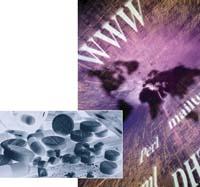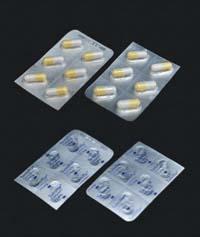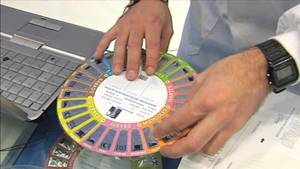Fake drugs on the internet
2008/07/19 Galarraga Aiestaran, Ana - Elhuyar Zientzia
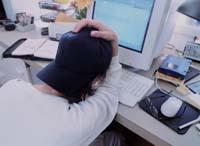
This association has just carried out an investigation on drugs that are sold through the Internet and has published really interesting data. The association itself has highlighted that two out of three pharmacies that are sold on the net are false, 95.6% of the pharmacies on the Internet are illegal, 94% of the websites that sell drugs do not give name to a pharmacist and nine out of ten do not ask for prescriptions to the buyer.
However, in their report they have published many more data, such as the drugs they offer on the Internet. They offer mainly drugs to cure diseases that affect many people and copies of the most sold and expensive drugs: drugs to treat erection dysfunctions, antides and antides, as well as anticancer drugs, anti-depression and other mental diseases, related to the circulatory apparatus, etc.
Normally, people who want to keep the disease silent tend to buy it, but this can have serious consequences. In fact, the report indicates that false drugs do not contain active compounds or are not found at the necessary dose. In some cases, they contain toxic components or have not been stored in adequate conditions, so they can be harmful to health.
Keep in mind that these drugs are sold without any control and that the buyer does not receive the recommendations of the professionals: he does not know when, how and how much should he take. Therefore, the risk of error is high. For example, just a month ago Selena Walrond, a young British woman, died for taking a medicine bought on the Internet.
Walrond was 26 years old and bought a compound banned to sell in both the United States and Europe, dinitrophenol. Apparently, they take him bodybuilders and athletes to lose weight, and the girl also had that goal. But he took the recommended dose five times and died of an infarction the next day.
He allegedly obtained the compound from a Chinese website. In fact, many of the drugs sold online are manufactured in illegal laboratories in China, India and the Philippines, as well as in Eastern Europe, such as Russia.
Increasingly more and more
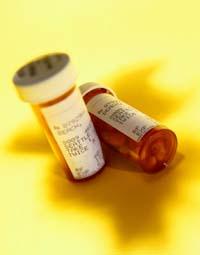
In fact, selling drugs on the Internet is not illegal. In Spain, this option was authorized last year. Pharmacies have the possibility of having a website through which they can sell, as well as in physical pharmacy. That is, for the administration of the drugs that are sold with the recipe, the patient must present the recipe voluntarily and not desired, otherwise he will not receive the medication. However, according to Spanish consumer organizations, there are few people who make purchases on the Internet and, in case of doing so, consumers mainly buy books, tickets to shows, airline tickets, computer and electronic products. It seems that in the case of drugs, patients prefer to go to a pharmacy and get it personally.
However, EAASM's research has shown that the Internet is a large undercover pharmacy. In 2005, 500,000 products were discovered in this market, twice that found in 2004; in 2006 the figure rose to 2.7 million and in 2007 it was estimated that it continued to grow at the same rate. A North American drug center (Center for Medicine in the Public Interest) estimates that the fake drug market in 2010 will be 90% higher than in 2005.
EAASM has shown that currently the regulation of Internet sales is quite weak. Although there are controls and warranties, consumers have no impediment to buying illegal or fake drugs, so they are not protected from the possible effects of these products. Sure, there are laws and governments try to avoid the illegal sale of drugs, but since the market is starting so fast, it is overflowing.
The report was completed with a test in which 18 prestigious drugs from well-known companies were tried to buy online: Cialis, Levitra, Viagra, Propecia, Lipitor, Plavix, Seretide, Coverse, Zyprexa, Efexor... They had no difficulty locating the websites that offered these medications, did not force them to give the recipe, did not offer the help of a pharmacist and received all but two.
When opening the pack, they have found everything. Some medications had the appearance of authentic, but others were wrapped in newspaper paper and it was evident that the box was false or had no instructions, or the page was written in many languages and had errors, or the pills were in a transparent bag, without other packaging... Yes, in the case of the five there were some more pills, of gift.
In later laboratory tests it was found that two out of three were false, and 16% of those who were true were illegally imported, and a third had no information sheets. Therefore, there is no doubt that, for the sake of health, it is better to buy drugs in pharmacy than to do it online.
Published in Gara

Gai honi buruzko eduki gehiago
Elhuyarrek garatutako teknologia



